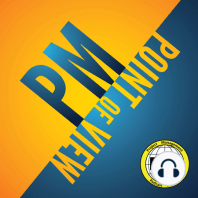61 min listen
54. Procurement
FromPM Point of View
ratings:
Length:
61 minutes
Released:
Sep 25, 2018
Format:
Podcast episode
Description
Almost every project involves some sort of procurement, whether it's goods, or teams of contractors. In fact, Procurement is one of the ten Knowledge Areas of the PMBOK® Guide, and merits almost a complete column in the index of the Sixth Edition. Yet how well versed are PM’s in the best practices, the methods and approaches of the procurement process? In this episode, thought leaders and procurement experts discuss Strategic Sourcing, Category Management, and Cooperative Purchasing, as well as transparency and ethics, and other factors that are crucial to public- and private-sector acquisition. Listen, learn, and get a free PDU! An educational podcast with PM Guests discussing key technical project management techniques in new ways. PDU Information Earn education PDUs in the PMI Talent Triangle for each podcast. Use the following information in PMI’s CCRS system to register the PDUs for this podcast: PDU Category: Online or Digital Media Provider Number: 4634 PDU Claim Code: 4634LZ8NVV Activity Number: PMPOV0054 PDUs for this episode: 1 About the Speakers David Yarkin is a recognized expert on strategic sourcing in the public sector. As Deputy Secretary for Procurement of the Pennsylvania Department of General Services, David led what has been called “the most sweeping transformation of state procurement in decades.” During his tenure, Pennsylvania saved $140 million (now $360 million) annually through strategic sourcing and established a procurement shared services center, centralizing all state contracting under DGS. He is currently the president of Government Sourcing Solutions. Gordon Wade is a recognized thought leader in the consumer-packaged goods industry. He was one of the creators of “Category Management.” In 2017 he led a 17-company industry consortium in updating CatMan by incorporating all the contemporary data and analytics engendered by the new digitally driven marketplace. At the request of the Association of National Advertisers, he wrote the protocol for “marketing accountability”. He has written several widely read white papers on e-com, “big data “(machine learning) as well as optimal retail space and assortment approaches. He is currently focusing on machine learning and transparency as emerging developments in CPG marketing. Rick Grimm CPPO, CPPB, FCIPS was appointed NIGP’s 5th Executive Vice President/CEO in January 1998 and has served the NIGP membership for more than 20 years. Prior to his appointment, he was employed in county government and a public school district for 23 years including 12 years in public procurement management. As a NIGP member, he chartered the Greater Miami Chapter and was a prominent leader of the Rocky Mountain Governmental Purchasing Association Chapter where he was co-chair for NIGP’s 50th Forum in Denver. He served on multiple NIGP committees and on the NIGP Board of Directors until his appointment as CEO. Rick earned a Bachelor’s Degree in Business Administration (University of Miami) and a Master’s in Public Administration (Florida International University). He holds a Certified Public Procurement Officer Certification (CPPO) and a Certified Professional Public Buyer (CPPB) designation from the Universal Public Procurement Certification Council.
Released:
Sep 25, 2018
Format:
Podcast episode
Titles in the series (100)
Influencers Part IV - Quality: Quality is difficult to define, so how can you guarantee that your project will result in a quality outcome? There are tools you can use and steps Project Managers can take to ensure quality results. Clearly define quality expectations up front, and... by PM Point of View
